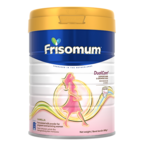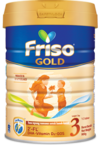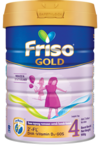Maternity Style Tips: Chic Ways To Dress Your Bump At Work
There’s a maternity fashion fix for virtually every professional occas.... read more

Week 9 of pregnancy may not feel much different than week 8. Your child is almost fully developed in miniature, and about the size of a grape. Your child is now known as a foetus, instead of an embryo. This is because of the disappearance of the embryonic tail. This protruding tail, which is the lower spine, is now enveloped with muscles, buttocks, and legs, giving your child have a more human-like appearance.
Colour is already starting to appear in your child’s eyes, and there are even eyelids. Taste buds are forming on your child’s tongue, along with reproductive organs and other key organs, like the pancreas, and gallbladder. At this point your child has doubled in size. Now, your child’s head is about half the length of the entire body, and it is tucked down toward the chest.
While your child’s muscles are starting to form, it will be at least another month or two before you feel those little punches.
Can you hear your foetus’ heartbeat?
Your foetus' heart is developed enough at week 9 of pregnancy that it can be heard via a handheld ultrasound device. Do not worry if your doctor can't pick up the sound of your foetus' heartbeat yet. It just means your foetus is hiding in the corner of your uterus, or the back is facing out. In a few weeks, or at your next visit, that sound should be audible.
What are the current pregnancy symptoms?
You have now missed your second period, and your breasts are growing larger by the day. The milk ducts are growing in preparation for feeding the foetus after birth. Indigestion may also be a key pregnancy symptom in the 9th week. At this stage, your placenta is now doing most of the job of producing hormones, and hormones can be hard on the body, and the digestive system. Plus, your body's metabolism and hormone levels have increased significantly. This triggers a decrease in blood sugar and blood pressure, which leads to fatigue.
Bloating is also another pregnancy symptom at this point. You could also experience a small amount of weight gain. During your pregnancy, your weight can fluctuate on a daily basis by as much as ½ kg. If you want to monitor your weight, weigh yourself only once a week - at the same time of day, and with an empty bladder. This will give you a better indication of your weight gain.
As your blood volume continues to increase, you might also see bulging veins on your hands and feet. This extra blood is there to help protect your foetus when you stand up or lie down, and it safeguards against the blood loss you will experience during labour and delivery.
As for vaginal bleeding, it can occur in the first trimester and it is not necessarily a cause for alarm. However, it could be a sign of ectopic pregnancy or a miscarriage. So you should always call your doctor if you experience any bleeding.
The first trimester can be tough as you manage all these pregnancy symptoms. Sickness, exhaustion, and all the anxieties! Hang in there! It won’t be like this forever.
Staying healthy and fit in week 9 of pregnancy
Eat healthy foods, get plenty of sleep, and exercise (with your doctor’s approval). Exercise can help reduce stress and prevent common pregnancy discomforts. Too much caffeine can be harmful to your foetus. Also, the temporary energy burst from energy drinks will only leave you feeling more exhausted in the end.
Instead, snack on foods that are high in protein and iron. Cheese, milk, eggs, lean meats, poultry, fish, beans, and nuts are all good protein choices. To increase your iron stores, try spinach, soy products, lean red meat, dried fruits, and iron fortified cereals. Did you know that dried apricots contain folic acid, potassium, calcium, and magnesium? They are a great for staving off pregnancy anaemia and kick-start a sluggish pregnancy digestion. Be sure to also consume pregnancy milk to ensure that you get all the important nutrients you and your chlild need every day! You can also get a healthy dose of vitamin B12, folic acid, calcium, and vitamin D with Frisomum Gold® too!


